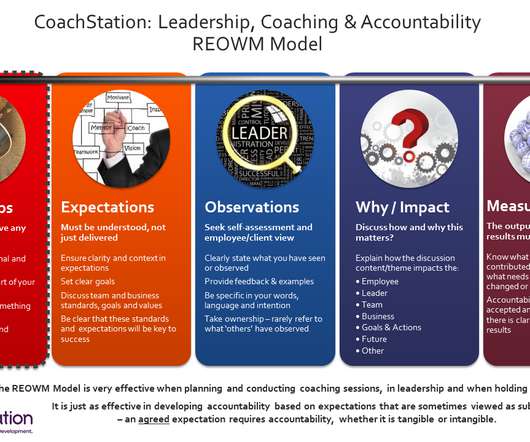Engagement and Motivating Employees
CoachStation
AUGUST 26, 2022
Developing the skills to engage team members is important. They then speculate unemployment will rise to 4% by 2024 in the wake of the economic slowdown influenced by rate hikes. As a leader you are obligated to develop your skills to influence and support each and every team member. Maybe, no more so than right now.














Let's personalize your content